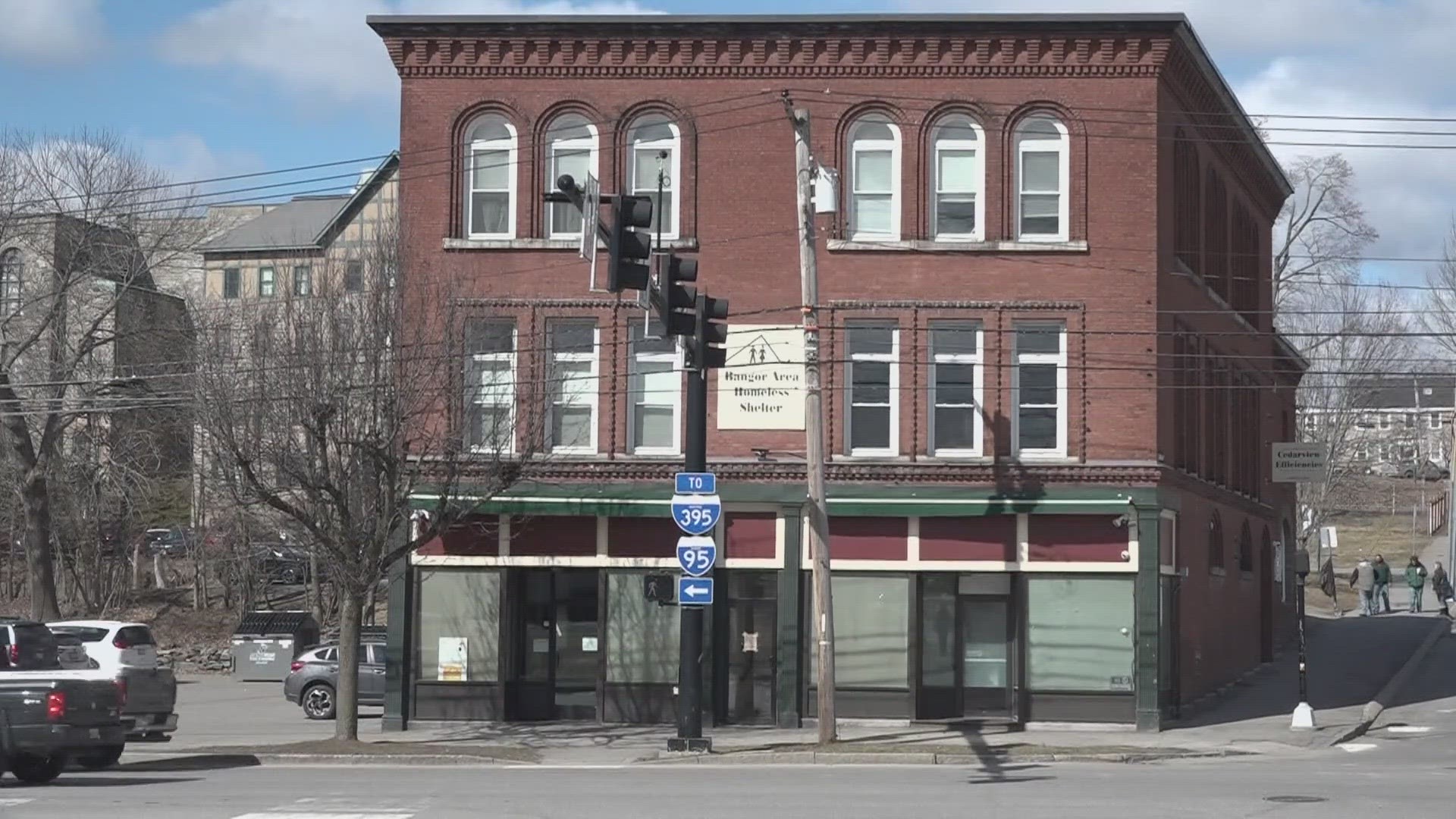BANGOR, Maine — With the continuous housing crisis that troubles Mainers, finding housing remains a struggle for many people statewide. Situational roadblocks like homelessness only make securing permanent housing more difficult for unhoused people who are still searching.
During Ann Sweeney's seven years of running the nonprofit Hope for Homeless, she has learned that there are several barriers that keep landlords from renting to people who are sometimes viewed as "high-risk tenants."
"It's not that easy to get an apartment," Sweeney said.
Often, many unhoused people are met with denial after denial when they apply for housing.
Through the Landlord Liaison program, participants such as the City of Bangor, caseworkers, nonprofit organizations, and landlord liaisons all work together to connect unhoused people living in encampments and at local shelters with property owners who are willing to take a risk.
The program is a pilot program offered through Community Health and Counseling Services (CHCS), and liaison services are available to property owners living in Penobscot and Piscataquis counties.
"Maybe they have prior evictions or criminal history, and we just really need a landlord that's going to take a chance on them," CHCS homeless response hub coordinator Jennifer Weatherbee said.
The program helps landlords take a leap of faith, and in the end, property owners agree to rent to some of the most vulnerable people in the community.
"None of them woke up today and said, 'This is going to be a great day to be homeless.' Nobody woke up saying that," Sweeney said.
The program offers unhoused people get a second chance. Weatherbee said liaisons work directly with landlords, serving as their go-to person when there is an issue, when there are complaints, if there is property damage, or if there is a lapse in rental payments.
According to Weatherbee, most tenants are able to receive vouchers for housing, which serves as a reliable payment source for landlords. What starts as a risk for landlords often becomes a productive working relationship, Weatherbee said.
Case managers who help unhoused people get reestablished and reintegrate are also tasked with helping people secure housing. Caseworkers often find success in their efforts when they mention the Landlord Liaison program to property owners.
"By the time the landlord comes to me they're saying, 'I talked to this case manager and this tenant. I'm concerned there may be an old eviction, there may be some old criminal history, but I want to take a chance,'" Sweeney said.
Sometimes liaisons refer landlords to tenants, and other times, case managers inform landlords about the program and get them connected to liaisons.
But housing is only the beginning. Sweeney said people need to feel like they are at home, which is why she and other organizations like Welcome to Home Goods Bank work to help people stock their homes with household items like sheets, kitchen utensils, appliances and furniture once they are approved for housing.
"They don't go into this empty floor or this empty space," Sweeney said. "They were doing better off with a tent where they had friends around them."
Christopher Olsen, the founder and president of Welcome to Home Goods Bank, said creating a sense of normalcy is an important part of solidifying an unhoused person's efforts to take steps in the right direction.
"We have had people that are excited about getting flatware because they have been sharing one fork, one knife, one spoon with their kids," Olsen said.
With caseworkers, outreach programs, and liaisons working together, lives are changed for the better.
"I need these navigators and these case managers to get to meet the landlords and get them to that little wedding part, or marriage, and merge them and we can get more people housed," Sweeney said.

